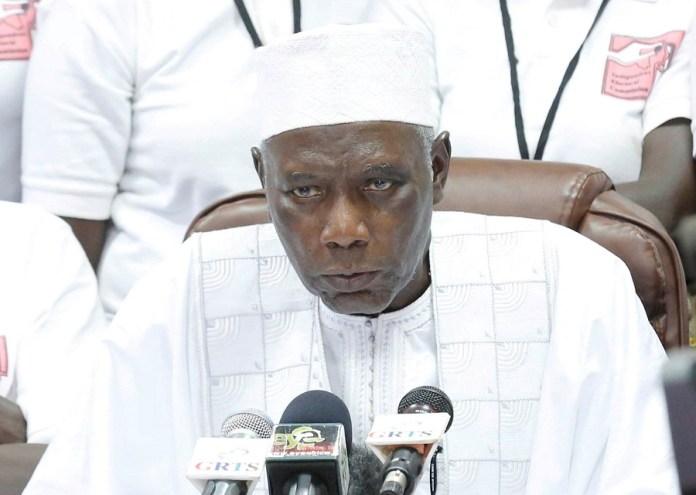By Alagie Manneh
As the country heads to presidential election on December 4, an Afrobarometer survey has indicated that most Gambians are mistrustful of the IEC.
“Despite fairly positive assessments of election quality, only about half (49%) of citizens say they trust the Independent Electoral Commission, a significant decline compared to 2018 (64%),” the survey, released yesterday, stated.
Afrobarometer said its findings demonstrated an “overwhelming belief” of Gambians in the value of elections and that they see recent national elections including the parliamentary election in 2017, as having been free and fair. “Even so, popular trust in the IEC has declined,” the report said.
Afrobarometer is a pan-African, nonpartisan survey research network that provides reliable data on African experiences and evaluations of democracy, governance, and quality of life. It is not the first time the research organisation published surveys in The Gambia, having previously conducted the first round of its surveys in 2018.
Its Gambian partner, the Centre for Policy, Research and Strategic Studies (CepRass) said it interviewed a “nationally representative, random, stratified probability sample of 1,200 adult Gambians in January and February 2021.
A sample of this size yields country-level results with a margin of error of +/-3 percentage points at a 95 percent confidence level, it added.
The executive director of CepRass, Sait Matty Jaw, said the findings, particularly on IEC, indicated a need for greater trust-building initiatives.
“The commission needs to be more vigilant, and it needs to show its independence. It is not the IEC [per se], it’s the situation that people are questioning,” he said.
He added: “The survey shows that people that vote mostly are in rural communities, that the urban settlers and the educated class don’t vote as often as those in rural communities.”




